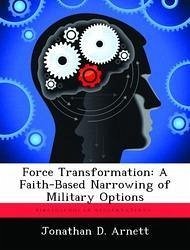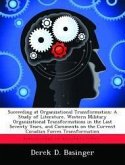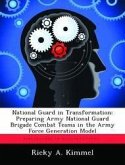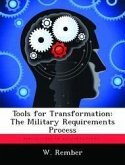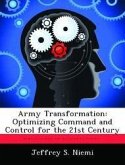In July 2003, Secretary of Defense Donald H. Rumsfeld and General Tommy Franks, the combatant commander of US Central Command (USCENTCOM), testified before the US Senate Armed Services Committee about the lessons learned of Operation IRAQI FREEDOM (OIF). In his prepared testimony, Secretary Rumsfeld cited one overarching lesson of the campaign. The Secretary articulated that lesson in the following remarks: Another lesson is that in the 21st century "overmatching power" is more important than "overwhelming force." In the past, under the doctrine of overwhelming force, force tended to be measured in terms of mass-the number of troops that were committed to a particular conflict. In the 21st century, mass may no longer be the best measure of power in a conflict. After all, when Baghdad fell, there were just over 100,000 American forces on the ground. General Franks overwhelmed the enemy not with the typical three to one advantage in mass, but by overmatching the enemy with advanced capabilities, and using those capabilities in innovative and unexpected ways.1 Interpreted succinctly, "overmatching power" in Mr. Rumsfeld's view is qualitative supremacy in troops and military capabilities-weapons systems and their effects-combined with superior tactics and operational art.
Hinweis: Dieser Artikel kann nur an eine deutsche Lieferadresse ausgeliefert werden.
Hinweis: Dieser Artikel kann nur an eine deutsche Lieferadresse ausgeliefert werden.

